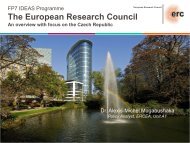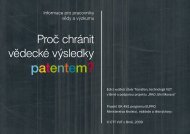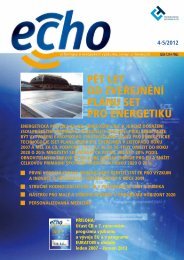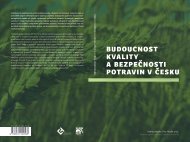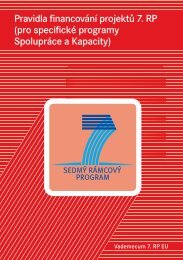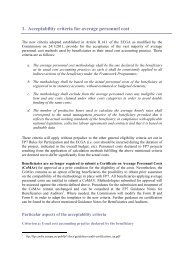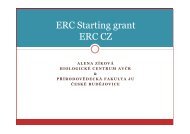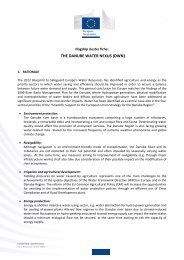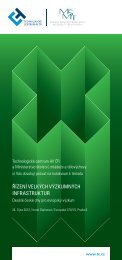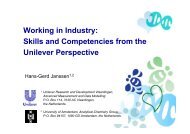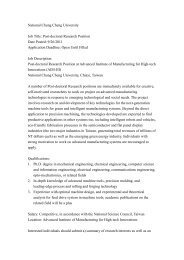Guide to Research and Innovation Strategies for Smart Specialisation
Guide to Research and Innovation Strategies for Smart Specialisation
Guide to Research and Innovation Strategies for Smart Specialisation
Create successful ePaper yourself
Turn your PDF publications into a flip-book with our unique Google optimized e-Paper software.
the contrary, they are offered as general guidelines that need <strong>to</strong> be assessed <strong>and</strong> applied in<br />
particular regional contexts, each of which has its own unique combination of problems <strong>and</strong><br />
possibilities. In other words, the regional context will help <strong>to</strong> determine the precise mix of<br />
organisations that need <strong>to</strong> be involved in the RIS3 process. The regional context is also the<br />
appropriate context in which <strong>to</strong> decide who is best placed <strong>to</strong> lead the RIS3 process.<br />
In terms of process, RIS3 design involves analyses, experimentation, debates <strong>and</strong> decisiontaking,<br />
with wide participation of ac<strong>to</strong>rs <strong>and</strong> experts, from within but also from outside the<br />
region. This needs <strong>to</strong> be communicated, unders<strong>to</strong>od <strong>and</strong> acknowledged: it is a time-consuming<br />
process that should be seen as an investment rather than a burden.<br />
The most important types of organisation that need <strong>to</strong> be involved in the RIS3 process are public<br />
authorities; universities <strong>and</strong> other knowledge-based institutions; inves<strong>to</strong>rs <strong>and</strong> enterprises; civil<br />
society ac<strong>to</strong>rs; <strong>and</strong> international experts who can offer benchmarking <strong>and</strong> peer review services<br />
<strong>for</strong> example. Figure 1 exemplifies a number of organisations belonging <strong>to</strong> each of the previous<br />
categories, as identified by EURADA.<br />
Source: EURADA<br />
Figure 1 - The regional knowledge ecology<br />
A criticism that was sometimes levelled at the RIS process was that it was prone <strong>to</strong> being<br />
'captured' by traditional interest groups in the region, groups that were more interested in<br />
37



